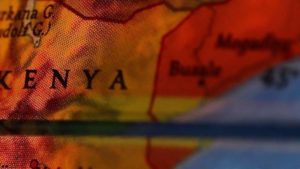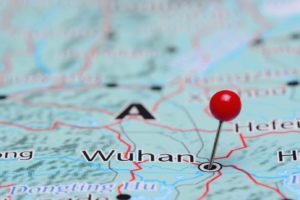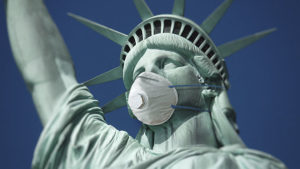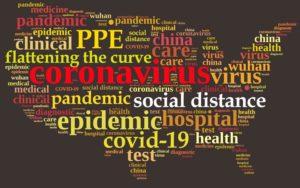In this Opinion piece, there are a couple of observations arising from COVID19 in the Kenyan context since the National dusk to dawn curfew was introduced in March of 2020.
That Media houses have „Politicized” their programming. Without Political activity, point of view programs and editorials like JKL, Point Blank, Sidebar and Press Pass have been without fodder. Indeed, some have been off-air for this period.
The reality that a vast number of Kenyans live from hand to mouth has been magnified. Even with the statistics of death in many other countries and the rising number of reported cases in the country, many would rather chance for daily wage.
It been observed that the Likoni Ferry crossing can actually be free of crowds. There is a huge idle population that would be hanging around the crossing. In a way, the society equates ACTIVITY with PRODUCTIVITY that must be seen to be going somewhere to be deemed productive
It has been observed that the National Government can actually mobilize to respond to a crisis. Government should mobilize similarly to respond to CORRUPTION as a National crisis widely spoken of and largely ignored
Martin Luther King Jr in his “Letter from a Birmingham jail” of 16th April 1963 lamented that “…Individuals may see the moral light and voluntarily give up their unjust posture; but, as Reinhold Niebuhr has reminded us, groups tend to be more immoral than individuals….” The Principle of Mob psychology is rife in Kenya. Individual Kenyans are very wise and discerning. The problem starts when groups meet in the streets, bars on Twitter and Facebook, the collective intelligence diminishes.
Further observation can be seen in Kenyan homes. Many retreat to Kenyan homes in preparation for the next Meet up, to change clothes, shoes & handbags and store movable assets. It appears, Kenyan homes are not places of inspiration and rejuvenation, otherwise many would be gladly staying in to develop updates to their respective Company’s SOP’s, think through their Business processes during the slowdown in economic activity and figure out ways to revamp the Agricultural sector through enabling legislation, farmer incentives etc, after all, 47% of Kenya’s GDP originates from the services sector while Agriculture accounts for 34%
Unfortunately, school is the place Kenyans take their young ones to keep them away from „trouble” and have a licensed professional babysit them for about 15 years before they become Adults
It may be observed that the Legislature is the place that provides soundbites for Newspapers and the next political rally. The Judiciary is the arm of Government that only functions when the country is in comfort and per a Government circular/classification allowing movement of Essential staff, a Non-Essential & Non critical service.
Offices are places where many get free wi-fi to view WhatsApp videos and scroll through twitter feeds. It is also where many go to remind themselves why they went to college, a means to pay off our loans and support after-office activities.
COVID 19 has also been a stark reminder that Public transportation and health services should not be dominated by private enterprises.
Services, Culture and Attitudes Disrupted by COVID19:
Going forward, it remains to be seen how many Kenyans will regard collective religious gatherings. Will it be with suspicion of contracting COVID-19 whose vaccine is yet to be found or will it be characterized by reduced attendance/observance of religious practice in congregation. Might this also impact the collections at religious houses?
The introduction of Free-Primary schooling in 2003 brought about an upsurge of private schools which charge exorbitant fees compared to the public schools. COVID-19 has made many start considering Home-schooling and the need for Online classes. Might we see reduced enrolment in private schools post-COVID? The Government may also need to open up avenues of learning and provide incentives to those providing online education as a means of increasing the penetration rate of access to education.
Further, there has been debate about the restart of the 2020 Academic year on the basis that the current syllabus has been severely disrupted and there is insufficient time to recover the time lost.
The Police have also come under scrutiny for their behavior in enforcing the curfew time. During the early days of the curfew, there were reported cases of police brutality eliciting public outcry. Human Rights activists and the Courts have come out to condemn the same and called for a review of policing procedures. This review may last long after COVID-19.
The finance sector and the economy in general has also come under scrutiny in this COVID era. In May, the Central Bank of Kenya issued a warning that 75% of small businesses risk collapsing by June of 2020 due to lack of funds. Indeed, a good number of Kenyans have been spotted selling fruits and vegetables form high end cars like BMWs, Mercedes and Prado. The owners lamented accruing loans and need for money to feed their children. The World Bank recently approved $1Billion to help Kenya address the COVID financing gaps and support the economy. Monies channeled through Government usually take long to have a real impact on the economy.
The economic outlook is so adverse that when the economy bounces back to normal it may be in the first or second quarter of 2021, if the worst of COVID does not take away from the current gains. If there are well-wishers willing to provide grants directly to SME’s in Kenya, which may be a quicker way to impact 75% of the economy and ease the current economic slump.
In the prevailing COVID pandemic, it has been noted that the Kenyan society perpetuates privilege. Media has shown how numerous people gathered in funerals, recreational spots and political pressers without regard to the set limit of a maximum of 15 people via a Kenya Gazette notice. The more privileged a gathering, the more the people and disregard of social distancing measures. Going forward, there may need to be a review of how we uphold the rule of law if Kenya is to be a society of equality and justice.
Lawi Sultan Njeremani




